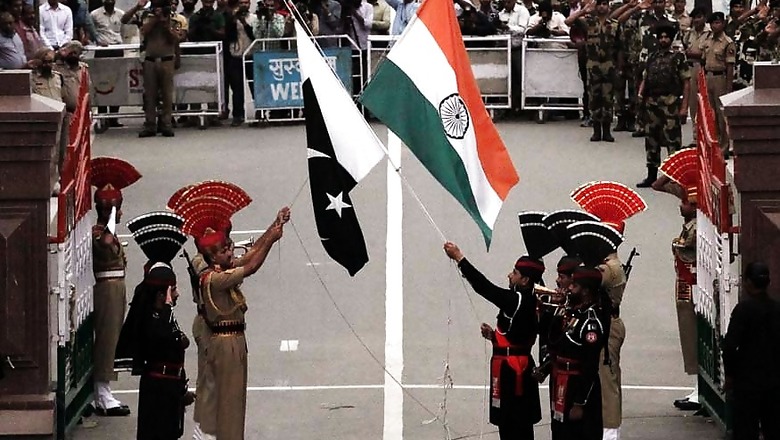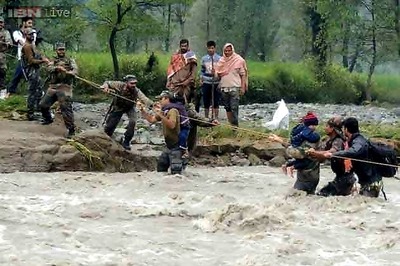
views
While the entire world is relentlessly trying to deal with the Covid-19 situation, Pakistan continues with its nefarious designs against India: be it in sponsoring terrorism in Jammu and Kashmir or its age-old game of spying on India using its high commission in New Delhi as the base. The nabbing of two officials of the Pakistani high commission in the city on May 31 for their indulgence in espionage activities under assumed Indian identities is the latest in the series of anti-India activities by the office.
They have reportedly been declared personae non gratae and asked to leave the country within 24 hours. This case is an example of the high degree of professionalism on the part of the counter-espionage wing of the concerned authorities in India and should come as a setback to the Pakistani high commission here and also to the Pakistani authorities back home. But going by the past records of Pakistan, it would be in denial mode and might react with retaliatory action of deporting two officials of the Indian high commission in Islamabad with cooked-up counter-accusations.
Retaliatory action while caught on the wrong foot and trying to outwit India by taking advantage of its liberal attitude is a well-established practice of Pakistan.
A classic example of this is the case of Shadi Lal Kapoor, which is the first instance of espionage against India, dating back to 1951.
Shadi Lal Kapoor was a junior-level officer of the ministry of external affairs posted in the Indian consulate in Karachi around 1950. He was cultivated and won over by an official of Pakistani Intelligence Bureau (IB) to get information on the activities of the Indian consulate. He turned out to be a good asset for the agency.
When Kapoor was posted back to Delhi, the concerned officer of Pakistani IB was also posted in the-then Pakistani consulate in Delhi. He continued to remain in touch with Shadi Lal Kapoor with clandestine meetings at different places in Delhi to elicit information from the asset.
This suspicious contact came to the notice of the vigilant eyes of the counter-espionage agency in Delhi and, finally, in one such meeting, the Pakistani official was caught-red handed with Shadi Lal Kapoor.
While Kapoor was prosecuted under the Official Secrets Act, the Indian authorities initiated action to declare the Pakistani official persona non grata and deport him. The Pakistani consul general immediately contacted the-then external affairs minister and reportedly mentioned to him that his role as the head of the consulate was to build bridges between the two countries and improve the bilateral relationship.
He said that any mention of this case in the press will harm the ties between the two countries and pleaded not to give any media publicity to the development. He also assured that he would send back that officer to Pakistan the very next day.
Getting no affirmative response from the minister, the consul general sought an urgent appointment with Prime Minister Jawaharlal Nehru and met him. He made the same plea of bilateral relationship. In his large-hearted approach, Prime Minister Nehru acceded to his request and the ministry of external affairs was directed not to give any media publicity to this case. On the next day, the moment the Pakistani official reached Karachi, the Pakistani authorities convened a press conference where they announced their decision to declare one official of the Indian consulate in Karachi persona non grata and deport him to India for alleged indulgence in espionage activities. It was a classic case of betrayal of trust by the Pakistanis.
Since then, the Pakistani mission in New Delhi has remained a hub of Islamabad's nefarious designs to sponsor terrorism, insurgency and espionage activities.
Unlike in the case of Shadi Lal Kapoor, where a junior-level non-diplomat was involved, even senior diplomats in the Pakistani high commission in New Delhi have been directly indulging in espionage activities.
One such case was that of Brig Zaheer ul Islam Abbasi, head of the defence wing in the Pakistani high commission in New Delhi in 1988. He had cultivated a retired major of the Indian Army and was using him to get information concerning deployment and other details relating to the force.
Despite all security precautions by the brigadier, this did not skip the attention of the vigilant eyes of the counter-espionage agency in Delhi. In a meticulously planned operation, Brig Abbasi was caught meeting his contact (the retired major), exchanging documents and passing on money to him in a hotel in New Delhi.
In the history of espionage cases, it is rare that such a high-ranking diplomat is caught red-handed in espionage activities. In this incident in the hotel, Brig Abbasi, a tall, well-built person, used force to make good his escape, resulting in a melee and scuffle to overpower him. Significantly, instead of feeling embarrassed, the Pakistani high commission lodged a false complaint to the ministry of external affairs over the use of force by Indian officials against a diplomat.
These are a couple of examples of Pakistan’s sustained single-point agenda of destabilising India. Its successive defeats in war, innumerable exposures in cases of espionage and sponsoring terrorism and insurgency in India, and ignominy of being labelled as a sponsor of terrorism internationally is not going to deter the country from pursuing its nefarious designs against India.



















Comments
0 comment